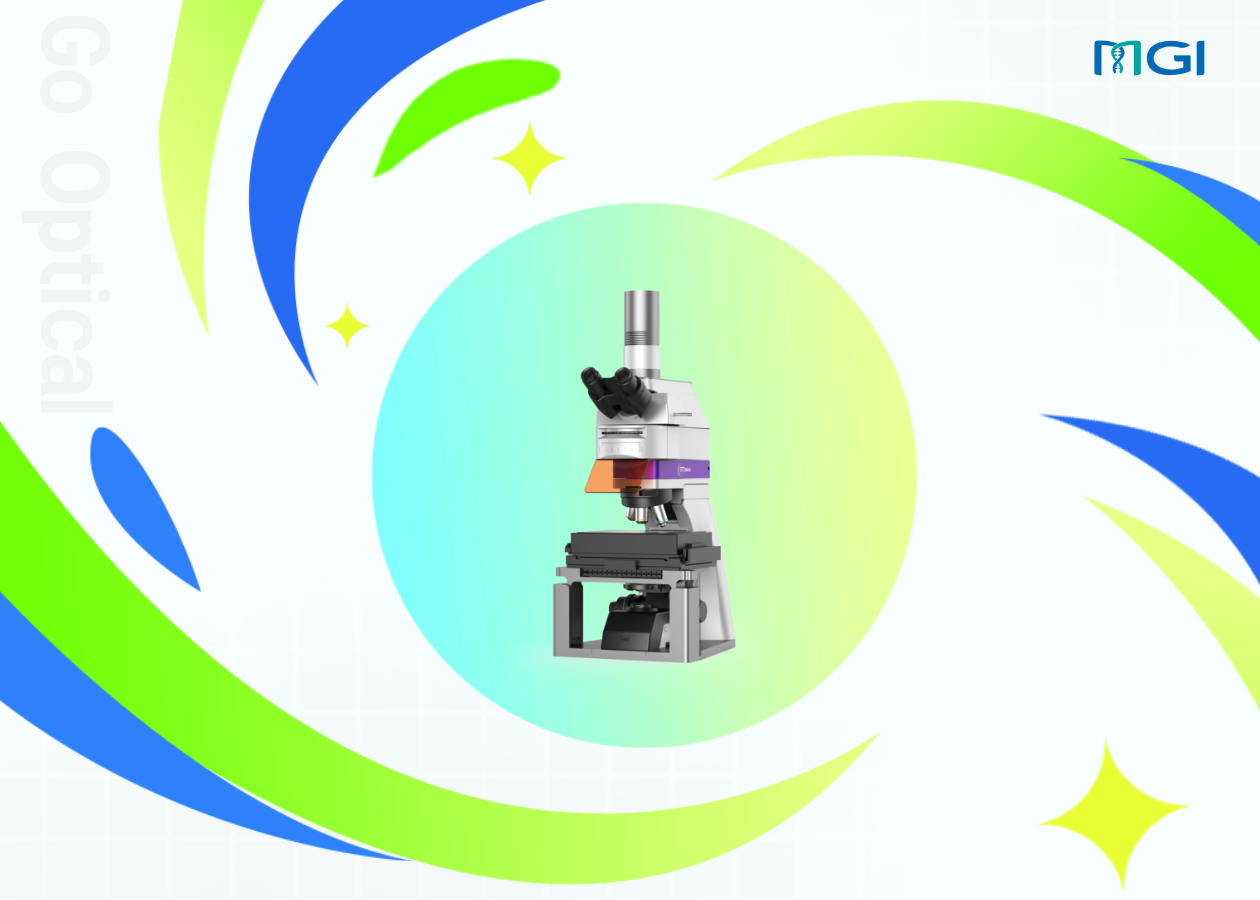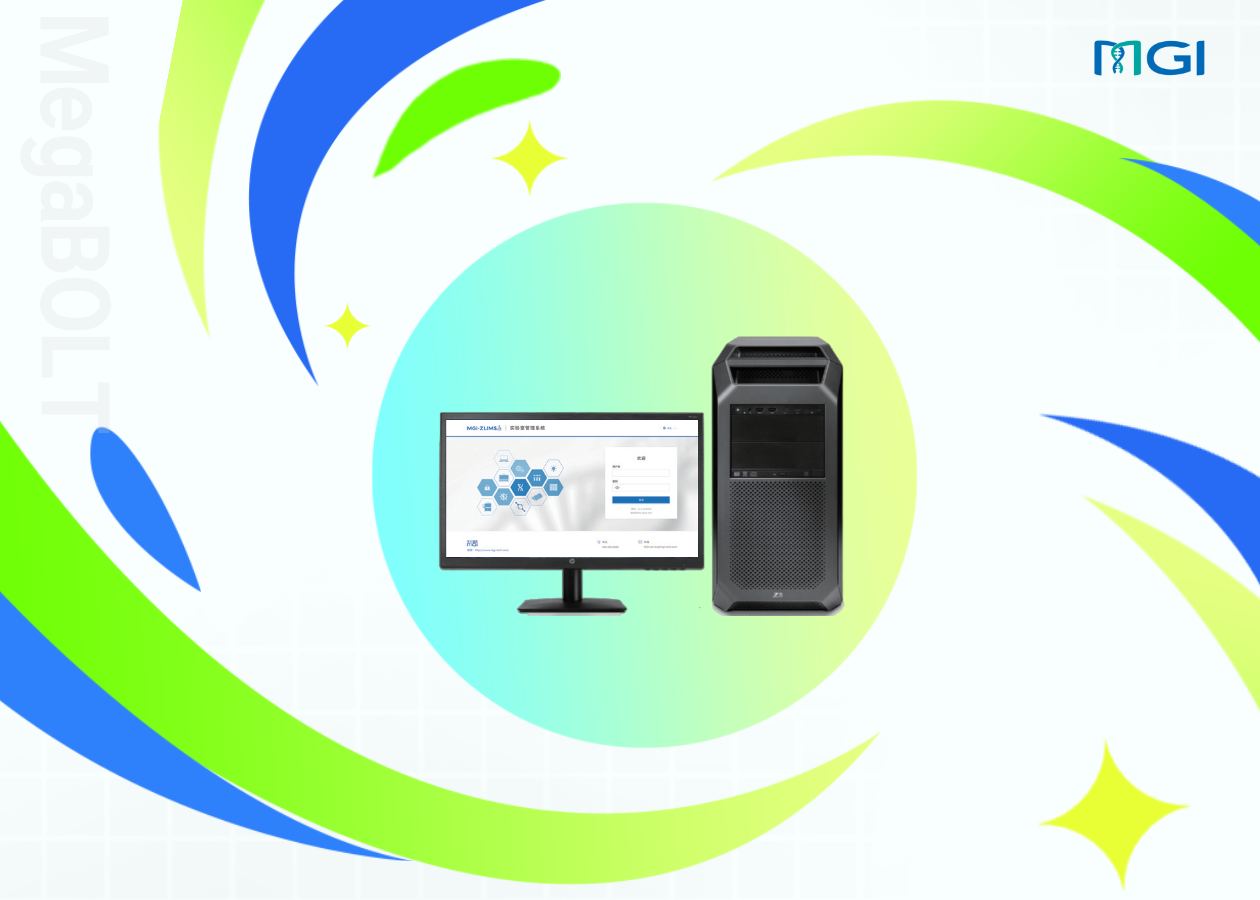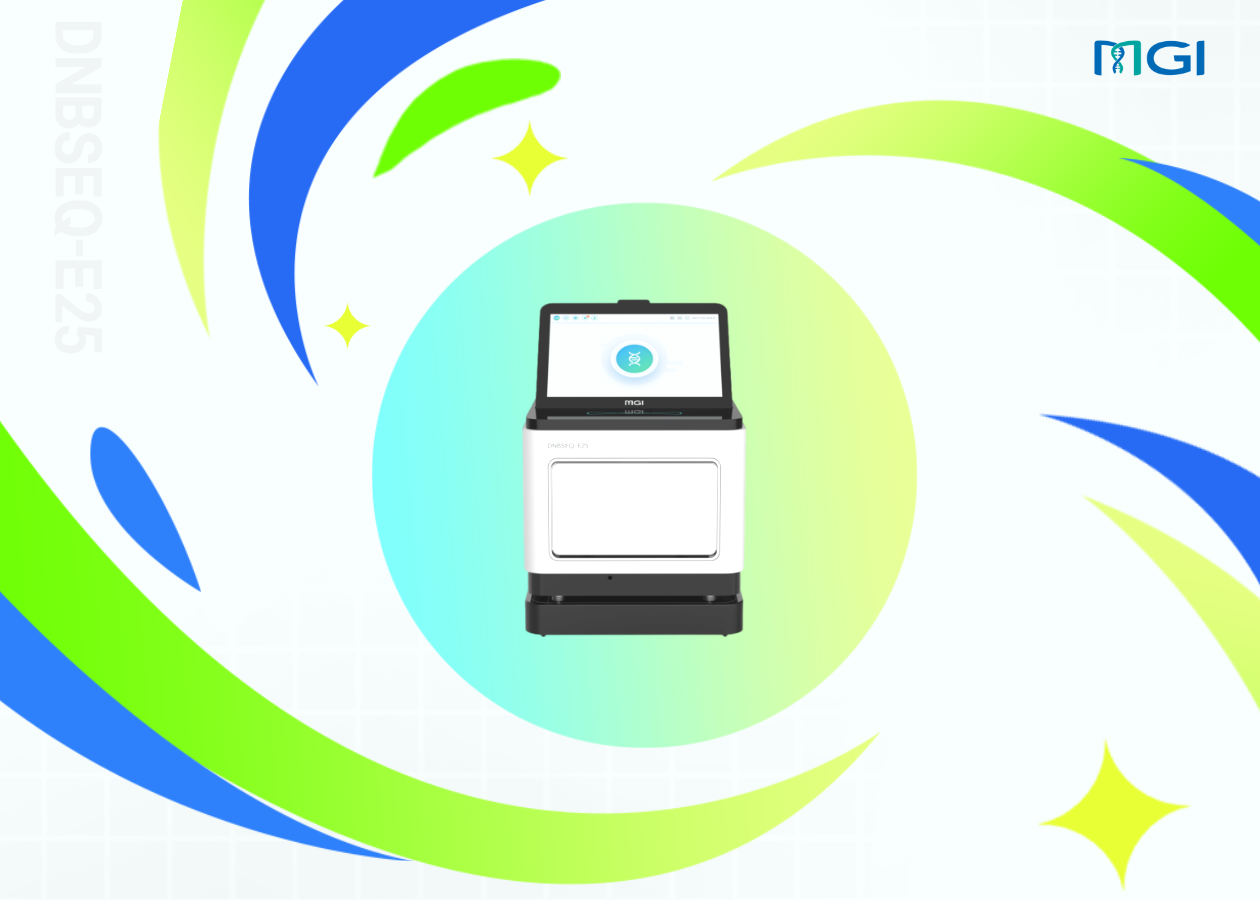At MGI Technology and Application Conference of Genomics (TACG) held during ICG-13 on October 25, Dr. Yasushi Okazaki, team leader, and Dr. Ken Yagi, deputy team leader of RIKEN Center for Integrative Medical Sciences, gave an inspiring speech about the MGI high-throughput genetic sequencer MGISEQ-2000 as the highly versatile platform to satisfy the multiple needs of RIKEN research projects.
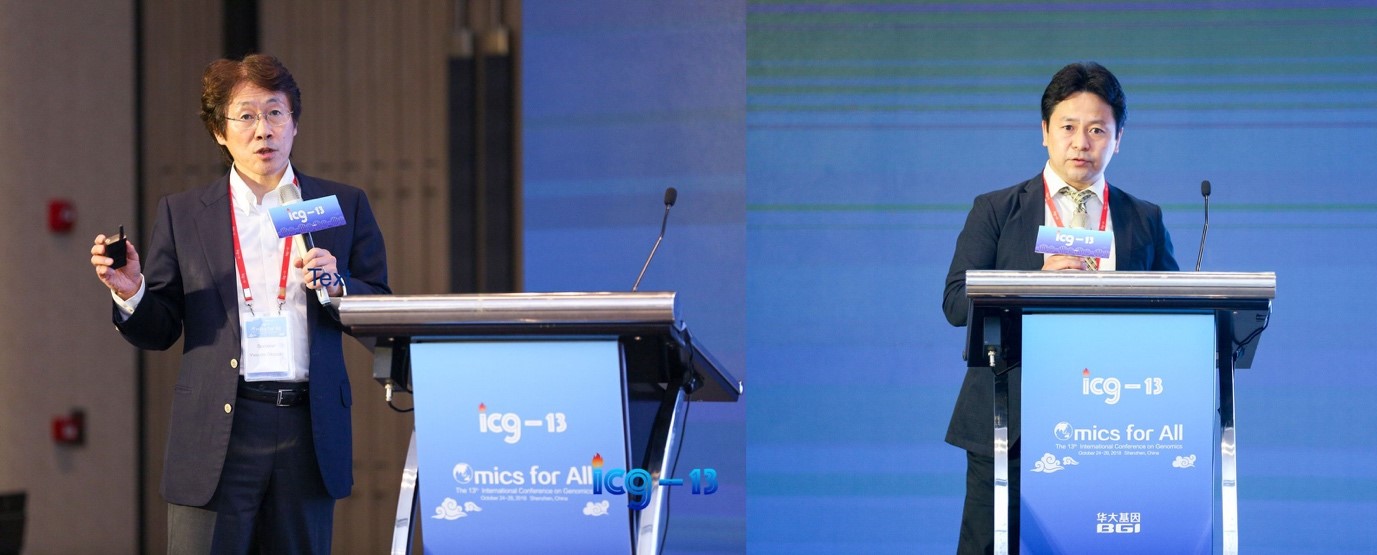
RIKEN, as one of the leading national research institutes in Japan, established the Genomic Sciences Center in 1998, and has contributed to the Human Genome Project. Now RIKEN is highly recognized for its genomics research and transcriptome research, using NGS technologies.
In early 2018, RIKEN has successfully installed the first MGISEQ-2000 genetic sequencer. Dr. Okazaki introduced that RIKEN has been using MGISEQ-2000 in international research projects such as Functional Annotation of Mammalian Genome (FANTOM) and Human Cell Atlas (HCA) project. FANTOM is a cDNA encyclopedia project annotating collected clones. Human Cell Atlas project targets to create comprehensive reference maps of all human cells—the fundamental units of life—as a basis for both understanding human health, and diagnosing, monitoring, and treating disease.
For FANTOM project, RIKEN has utilized MGISEQ-2000 with the Cap Analysis of Gene Expression (CAGE) method, which is a technology for comprehensively mapping the transcription start sites developed by RIKEN. For Human Cell Atlas project, MGISEQ-2000 has also been applied for single cell analysis, combined with random displacement amplification sequencing (RamDA-seq), a technology that enables the full-length total RNA sequencing for single cell.
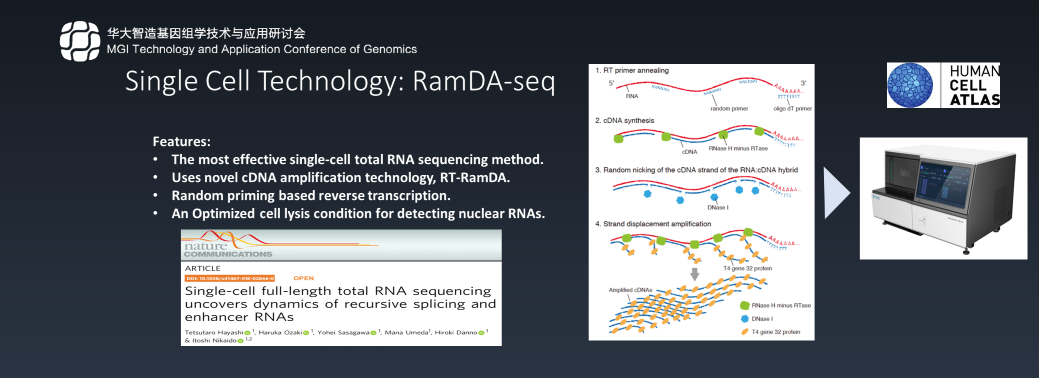
Dr. Yagi introduced an example of analysis performed on WGS data of human liver cancer tissues and normal tissues, acquired from both MGISEQ-2000 and HiSeq 2500. Single-nucleotide variants (SNVs) and insertion/deletion polymorphism (INDELs) were analyzed, and results showed that MGISEQ-2000 data were comparable and validated.
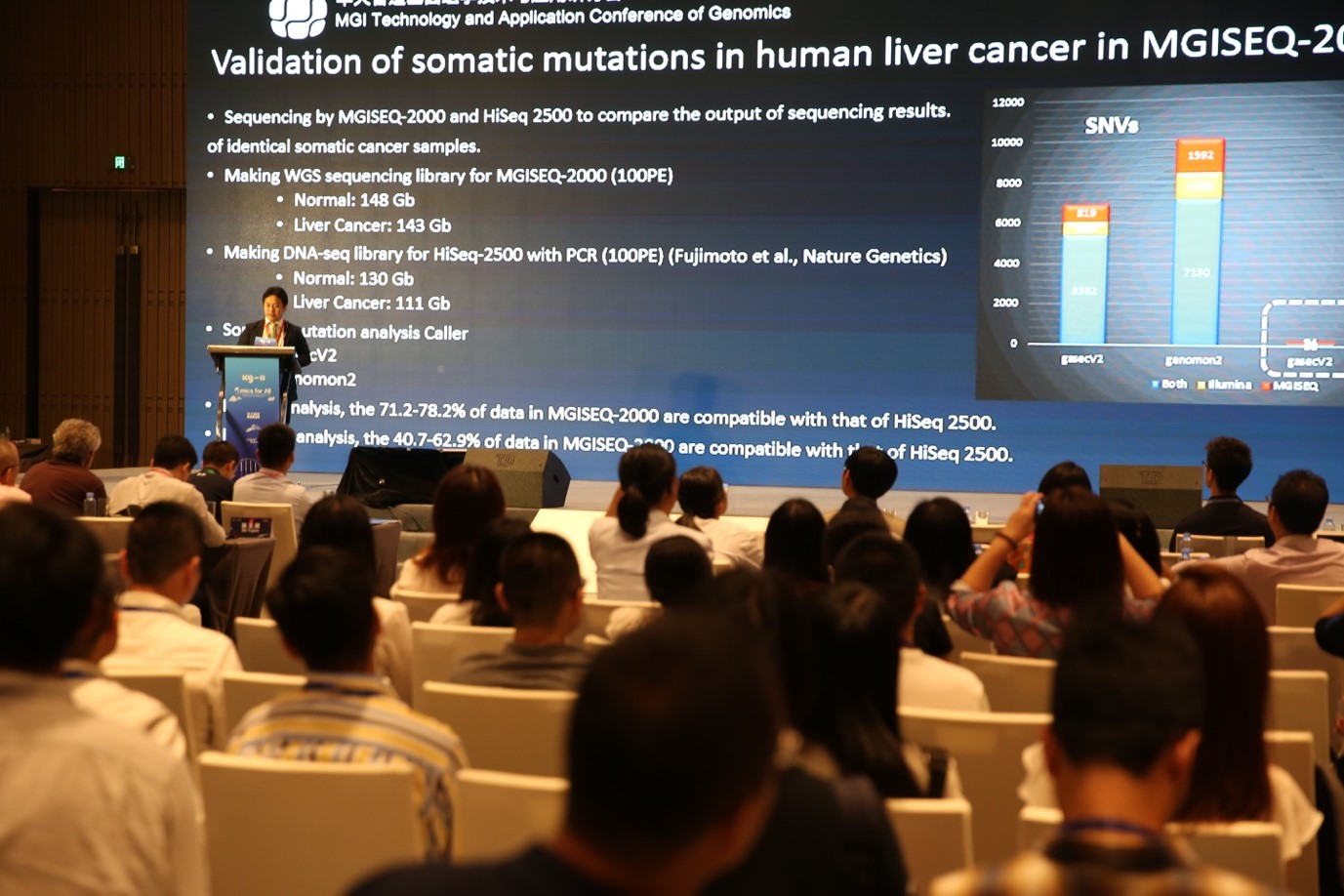
"As MGISEQ-2000 is a highly accurate and cost - effective sequencer, we will continue to use this great instrument in RIKEN." said Dr. Okazaki.
About RIKEN:
RIKEN is Japan's largest comprehensive research institution renowned for high-quality research in a diverse range of scientific disciplines. Founded in 1917 as a private research foundation in Tokyo, RIKEN has grown rapidly in size and scope, today encompassing a network of world-class research centers and institutes across Japan.
RIKEN Center for Integrative Medical Sciences aims to elucidate the pathogenesis of human diseases and establish new therapeutic methodologies by conducting cutting-edge research on human genome and immune function. The center applies multi-omics analyses across each hierarchy of genome, proteins, lipids, cells, tissues, and individuals by utilizing computational methods of data analysis, combining statistics and mathematics.
About MGI:
MGI Tech Co., Ltd. (MGI) is committed to enabling effective and affordable healthcare packages for all. Based on its proprietary technology, MGI produces sequencing devices, equipment, consumables and reagents to support life science research, medicine and healthcare. MGI’s multi-omics platforms include genetic sequencing, mass spectrometry and medical imaging. Providing real-time, comprehensive, life-long packages, its mission is to develop and promote advanced life science tools for future healthcare.



 Sequencer Products: SEQ ALL
Sequencer Products: SEQ ALL















 Technologies
Technologies Applications
Applications Online Resources
Online Resources Data Bulletins
Data Bulletins Service & Support
Service & Support Global Programs
Global Programs Introduction
Introduction Newsroom
Newsroom Doing Business With Us
Doing Business With Us Creative Club
Creative Club








